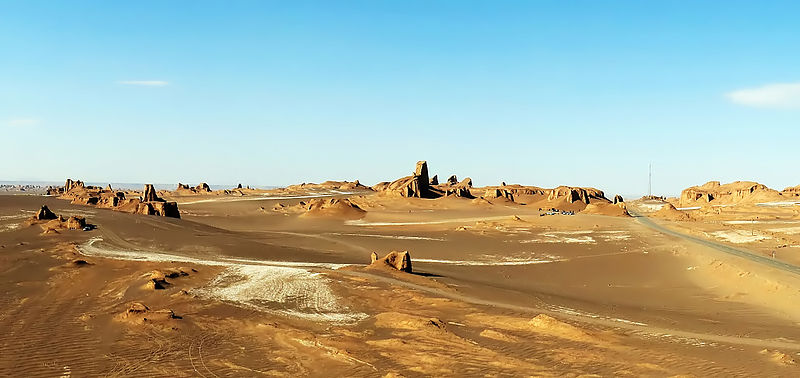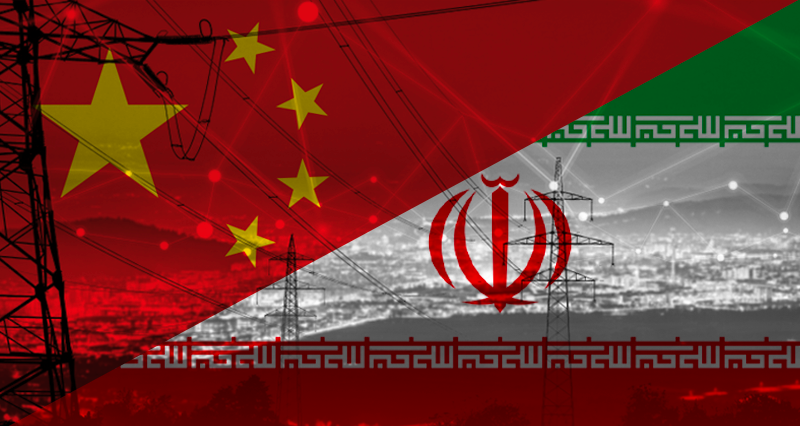Almost all analysts understand that the Middle East is facing a serious drought crisis. Lands which used to be considered the most fertile in history can no longer support life.
The Middle East is the region most affected by climate change and many have speculated that future wars in the region may come as a result of a water shortage.
Nowadays Iran, Iraq, Syria, Egypt and Sudan are all facing massive water shortage problems due to dams built in neighboring countries, while some countries like Lebanon are not allowed to build dams on their rivers, because they flow towards Israel.
Countries in the Persian Gulf have to purify salt water from the sea, and therefor use much more resources obtaining water than the price of the oil they extract from the land.
Even though Iran has had extremely good relations with Afghanistan and Iraq throughout the past couple decades, it is possible that it is the water shortage which has driven these countries to take negative stands against one another. Iran is accusing its neighbors Azerbaijan, Turkey and Saudi Arabia of stealing it’s rain water by cloud seeding, and also accuses Israel of cooperating with these countries by offering them new cloud seeding technologies to intentionally expose Iranian lands to drought.
As of late, demonstrations have broken out on both sides of the border between Iran and Iraq due to water and electricity shortages, and people from both sides have accused the other of over using their resources.
Moreover, people accuse politicians of corruption and government managers for maladministration and mismanagement of resources.
Iraq and Syria are facing a lot of challenges due to the Turkish dams built on the mouths of the Euphrates and Tigris rivers, which are causing droughts in Mesopotamia.
Some might still remember that the Persian Gulf countries invested in building dams on Nile River at its origins in Ethiopia and Kenya a couple of years ago in order to pressure Egypt, with whom they had political differences at that time.
Though the differences between Egypt and the Persian Gulf countries have been solved, African countries are still struggling with each other over related issues.
Israel destroyed Lebanese dams built on Litani river in Lebanon and even organized a military operation in 1978 called “Operation Litani”, ostensibly to push the PLO away from its borders, but in fact obtain control over the waterflow in the region.
Egypt has threatened to destroy any Dam built on the Nile River if it faces water shortages… if Syria and Iraq manage to overcome their current problems, their first concern would likely be asking Turkey to give them their Water Rights.
Iran is also asking Afghanistan to abide by the 1970 Heirmand River Agreement which gave Iran the right to 850 million cubic meters of the Heirmand River water every year, but the American corporations which are building dams on the Heirmand River don’t have to abide by this agreement, and therefore the Eastern part of Iran is facing serious droughts.
Lately, some ISAF and Afghan officials have accused Iran of supplying and Training Taliban Insurgents to attack towns and places where dams are built and using force to obtain its right to water.
If the situation is not carefully controlled, water wars in the region may occur sooner than expected, and some countries may resort to direct military force to get their water rights, while others may sponsor or supply insurgents to accomplish this task.
While in past century everyone was concerned about the energy shortage, in this century the world should be concerned about preventing wars over the water supply in the Middle East, a matter which also threatens the energy supply.
Though we have thus far discussed the issue in regards to the Middle East, everyone knows that this is not only the concern of those directly affected, but has consequences for the entire world.
To manage this potential crisis, the international community should start pressuring countries to abide by Climate change agreements. The products of countries like the US, which has abandoned climate agreements, should be sanctioned.
It is also time for the International community to sit down and arrange agreements regarding water rights, and find solutions to force all countries to abide by these decisions.
We should expect advanced agricultural countries to start transferring their experiences and technologies for obtaining purified water to less advanced countries in order to save the world and humanity.

















Leave a Reply